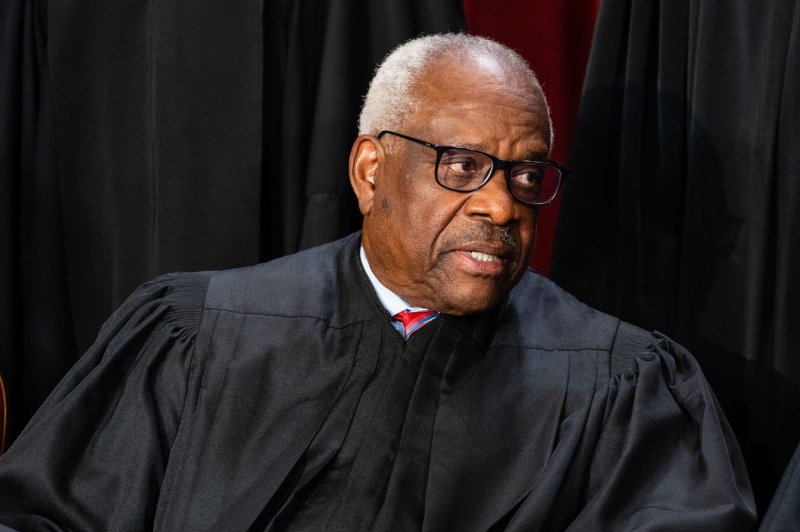1 of 2 | Supreme Court Justice Clarence Thomas dissented in the court's decision to back an appeals court decision allowing a death row inmate to be executed with an unproven method. File Photo by Eric Lee/UPI |
License Photo
May 15 (UPI) -- The U.S. Supreme Court on Monday ruled that an Alabama death row inmate should be allowed to die by nitrogen hypoxia, the state's new method of execution, after the state failed to execute him last November with a lethal injection of drugs.
Kenneth Smith was convicted and sentenced to death for the 1988 murder-for-hire case of Elizabeth Dorlene Sennett, a pastor's wife who was fatally stabbed and beaten.
During his botched execution six months ago, Alabama Department of Corrections workers could not start an intravenous line for the lethal injection of drugs before midnight, expiring the warrant.
Smith's legal team said the state should use the unproven nitrogen hypoxia. Nitrogen hypoxia, or nitrogen suffocation, is a method of forcing someone to inhale pure nitrogen, or nitrogen in much higher concentrations than are present in the atmosphere.
While the method was approved by Alabama, it has never been used or tested, and Smith would become the first inmate in the country to be executed with this method if Alabama moves forward.
Seven of the nine justices let stand a decision by the U.S. 11th Circuit Court of Appeals that sided with Smith's attorneys and stayed his execution. The Supreme Court said, though, that Smith's execution could go forward.
Conservative justices Clarence Thomas and Samuel Alito dissented, saying they would have heard the case. Thomas went as far as the call the appeals court's decision to let Smith die with this method "flawed logic" since the state has not even established protocols for such an execution.
"When the question is whether the Eighth Amendment requires a state to replace its chosen method with an alternative method in executing the plaintiff, it is simply irrelevant, without more, that the state's statutes authorize the use of the alternative method that is to take place sometime in the indefinite future," Thomas said in dissent.
The State of Alabama argued it should be allowed to have a second chance to execute Smith by lethal injection.















